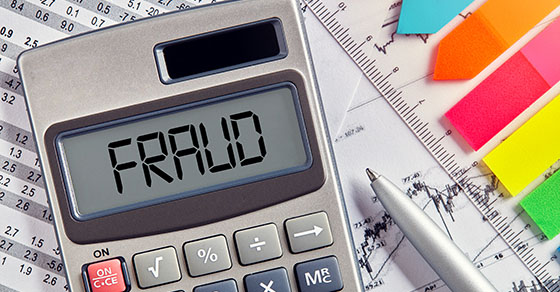Your company has landed a lucrative new account, and the customer has already placed several small orders, paying in full, on time. Now the customer wants to place a larger order, but has requested that you first expand its credit account. Warning! There’s a chance that you could become a victim of bankruptcy fraud. Your new customer may be planning a “bust-out” — a common bankruptcy-related scam.
Bust-out scams
In a bust-out, fraudsters create a bogus company — often with a name similar to that of an established, reliable business — to order goods they have no intention of paying for. In fact, they plan to sell the products for fast cash, file for bankruptcy and leave you, the supplier, holding the empty bag.
In a variation of the scheme, bogus operators buy an existing company and use its good credit to order the goods. Either way, they sell the products they order below cost, for cash, and then file for bankruptcy, writing off the amounts of the supplier’s bill.
You can avoid becoming a bust-out victim by carefully vetting businesses that were formed only recently. Also be wary of established companies with new ownership — particularly if the new owners seem to want to keep their involvement under wraps. And pay particular attention to customers that have:
• Warehouses stuffed with high-volume, low-cost items,
• Disproportionate liabilities to assets,
• No corporate bank account, and
• Principals previously involved with failed companies.
Fraudulent conveyance schemes
Bust-outs are far from the only bankruptcy-related scams. In fact, the most common type of bankruptcy fraud is concealing assets — or fraudulent conveyance. This scheme involves hiding or moving assets in anticipation of a bankruptcy. The owner of a business on the brink of collapse may, for example, transfer property to a third party — most commonly, a spouse — for little or no compensation. The third party holds the property until bankruptcy proceedings have concluded, and then transfers it back to the business owner.
Alternatively, the business owner files for bankruptcy and then, with the court’s approval, sells property below value to a straw buyer. The owner’s relationship with the buyer isn’t disclosed, but the buyer holds the property until the owner is ready to reclaim it at an agreed-upon price.
In either case, the goal is the same: to keep property and monetary compensation out of the hands of creditors.
Prevention first
Fighting bankruptcy fraud typically requires professional legal and financial help. The best protection is prevention, but if you suspect one of your customers is trying to pull a fast one, contact us.
© 2018



